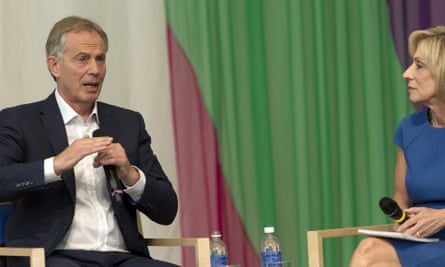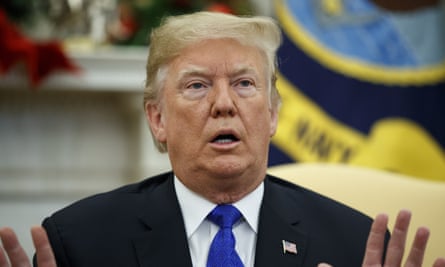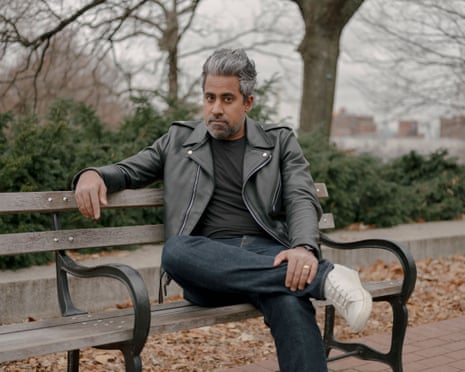Anand Giridharadas was surprised this September when Google invited him to their offices, given his outspoken criticism of tech giants. “I applaud whoever it was who invited me or did not read my book,” Giridharadas said to a few tepid laughs.
Afflicting the comfortable is a talent honed by Giridharadas, and his talk about breaking up monopolistic companies like Google and checking the power of its elite executives – while speaking at Google – is only one recent example.
A former McKinsey consultant-turned New York Times columnist, Giridharadas is now a bestselling author. His recent book, Winners Take All: The Elite Charade of Changing the World, torches the privileged circles he has moved in much of his adult life, and is rooted in insider knowledge.
The book stems from a speech he was asked to give several years ago to the Aspen Institute, a thinktank that organizes exclusive ideas conferences for the wealthy and powerful, as part of a program designed to raise up a “new breed of leaders” and solve “the world’s most intractable problems”. Instead he delivered an electrifying critique, arguing the “change makers” and “thought leaders” in America’s winners-take-all economy – once again, the very people he was speaking to – are less helping the world through their various philanthropic efforts than propping up the broken system that made them.
Giridharadas first gained access to the high-flying group he censures in 2011 when he was selected as part of a group of distinguished fellows for the Aspen Institute. Giridharadas was a strange pick, as not only the youngest member at 29, but also the sole journalist in a group composed largely of rising stars in the business world (the 2018 fellows group is composed almost entirely of CEOs).
Still, he made fast friends with his Aspen compatriots, and even officiated one of their weddings. Soon he found himself flying around in their private jets and mingling with them in ostentatious mansions.

The unstated thesis behind their being chosen by Aspen was clear: that the people best-equipped to protect the interests of the poor are the rich and rich adjacent.
Giridharadas was bothered by it, and particularly by how the program seemed to encourage elite participants from tech giants and hedge funds to start philanthropic side-hustles doubling as vanity projects, rather than find ways to do less harm in their day jobs. (At a Goldman Sachs-sponsored lunch put on at a fellowship reunion, for instance, the corporate giant’s role in the 2008 financial crisis went unmentioned as its do-gooding was praised.)
And so, given an opportunity to speak at an Aspen gathering in 2015, Giridharadas behaved like the journalist he is. Instead of presenting what was expected, he called things as he saw them. “I love this community, and I fear for all of us – myself very much included – that we may not be as virtuous as we think we are, that history may not be as kind to us as we hope it will, that in the final analysis our role in the inequities of our age may not be remembered well,” he said, to an aghast audience that included Madeleine Albright, the former US secretary of state, and prominent writers like himself.
The book that grew out of that moment is unsparing in its criticism and sometimes even strident. Giridharadas mercilessly mocks the wealthy who would change everything but the rules that enabled and protect their status, and ridicules their coinage of notions like “win-win”, the idea that there’s no tension between doing well for yourself and doing good for others.
Perhaps no one better emulates the failure of the “win-win” ethos than the Sackler family, Giridharadas writes. Their pharmaceutical empire helped make them one of America’s wealthiest and most philanthropic families, with wings of universities and concert halls named after them – including an entire Smithsonian museum. But they’ve also profited off America’s opioid crisis, which the US Department of Justice and others have accused them of fueling through their aggressive and misleading marketing of the widely used drug OxyContin. Their company agreed to pay $635m in fines in 2007, a pittance compared with how lucrative the drug had been. Now, in precisely the kind of the “win-win” model that Giridharadas reviles, the family’s patriarch, Richard Sackler, is working to fight the opioid epidemic – and make money doing it – by patenting a new drug to help wean people off opioids.
Giridharadas also calls special attention to the Clinton Global Initiative, Bill Clinton’s recently defunct annual gathering that extracted charitable commitments from corporations and plutocrats in exchange for some good PR and image laundering. “They fly here because they see investment opportunities; they see branding opportunities,” Giridharadas quotes Darren Walker, the president of the Ford Foundation, saying of the conference: “It’s this idea that you can support a health initiative in Nigeria or the Niger Delta to reduce disease or diarrhea or whatever, and you can also make an investment in a company that is a polluter in the Niger Delta.”
And yet Giridharadas wants to do more than just shame people – he wants to have a conversation, and with people whom he considers his peers. “Many of my friends are drunk on dangerous bullshit. However, they’re still my friends,” he says.

It’s been called a traitor-to-its-class kind of book, and though it wasn’t written per se for the elites it excoriates, it does appear to have their attention. The 2015 speech was first written up by David Brooks, a New York Times columnist who was in attendance and is no stranger to the ideas circuit Giridharadas excoriates. And when the book first came out, renowned economist Joseph Stiglitz took to the pages of the Times to urge philanthropic plutocrats to “read a copy of this book while in the Hamptons this summer”.
It has also found deeper resonance in a country still searching for explanations of the last presidential election. “It’s hard for me to think of anything better designed to burn down this age of business fundamentalism, this age of market worship than the flamboyant failure of the faux billionaire, faux savior Donald Trump,” Giridharadas says.
Trump’s campaign was boosted by the same logic by which America’s wealthy “saviors” deem themselves fit to lead, he argues: that their familiarity with and even greedy exploitation of America’s financial and political systems somehow makes them uniquely qualified to fix them.
Giridharadas admits he’s long been repelled by the notion that, for instance, the best course of action for young would-be world savers is to get an MBA. And his book rails against what he sees as a central myth that’s taken hold in American culture: that training at Goldman Sachs or a stint at McKinsey is somehow essential, or even particularly relevant, to making good policy or a meaningful understanding of the world.
He chafes at the quick, self-aggrandizing solutions hawked by the people who speak at ideas conferences. And so, perhaps, it follows that when pressed for solutions, he bristles. “This is a book about tearing down dogma,” he says. “It’s trying to convince you that other people’s unfounded dogma have hijacked the discourse,” he adds. “I don’t have a substitute dogma to replace this dogma with.”
In a way his resistance makes sense. He doesn’t want to be the anti-thought leader leading the charge against thought leading, after all. And he’s all for reform, but only once the problem has been fully considered, which, by the way, he thinks it almost never is.

“It’s the winners who want these solutions,” he says, to mask their desire for premature absolution. “I think the desire for solutions and takeaways itself has an agenda,” he adds. “I think takeaway culture is a big part of why we’re here: because we’re not willing to think any more and understand the complexity of these problems, and sit with them.”
He sounds some hopeful notes, provocatively quoting the billionaire Vinod Khosla as saying “capitalism exists by permission of democracy”. It’s a way, perhaps, to suggest that real change requires politics and collective action, something Giridharadas has argued previously in the pages of the Times. “We ended slavery by acting together,” he tells me now. “We defeated fascism together. We electrified rural America together. We got kids out of factories and antifreeze out of medicine acting together.”
In addition he thinks Aspen would do well to spend its time listening to more of society’s losers, and fewer winners. “The powerful are very good at disseminating their own bullshit,” he says. “They don’t need the intellectual reputation laundering of ideas festivals to make their heavily marketed bullshit smell even sweeter.”
“I sincerely believe,” he says, “that had more of the institutions of this country – and particularly those involved in thinking and ideas, not just conferences but all kinds of things – been more skeptical of elite fantasies and more mindful of what was actually going on in other people’s lives in this country, I think it’s very possible we wouldn’t have orange Mussolini in the White House.”
